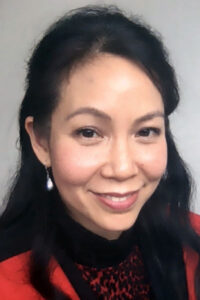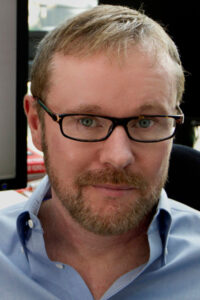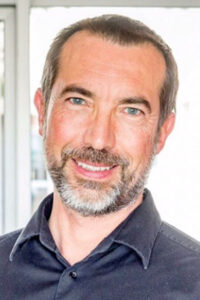Leading researchers to discuss their work into understanding the tumor-host ecosystem

The Monday, April 12, plenary session at the American Association for Cancer Research Annual Meeting 2021 will showcase experts whose work has accelerated discoveries relating to mechanisms of tumor progression, immune escape, and therapy resistance.
Probing the Dynamic Tumor-Host Ecosystem for Therapeutic Insights will take start at 10:45 a.m. EDT and emphasize understanding clonal evolution, mutational processes, and the interplay between tumor, immune, and stromal cells.
Serena Nik-Zainal, MD, PhD, University of Cambridge, will explain the information garnered from whole genome sequencing of human cancers and the clinical benefits derived from that knowledge during “Harnessing the value of mutational signatures in whole cancer genomes.” Nik-Zainal will share early insights from unpublished data from whole genome sequencing of almost 20,000 cancers and describe some scenarios where whole genome sequencing has positively impacted or could impact patient care, asking whether it is time to consider whole genome sequencing as possibly a necessary tool in treating people with cancer.
The presentation also will update viewers on some of the novel findings from the UK 100,000 Genomes Project, which has provided whole genome sequencing data from more than 15,000 patients from throughout England. It is the largest cohort of cancer patients in the world whose samples were subjected to whole genome sequencing.
“I hope that they will come away with an understanding of mutational signatures, which are patterns of mutations that arise as a cell turns from being a normal cell into a cancer cell, Nik-Zainal said. “Critically, I hope that they will understand that there are some mutational signatures that are clinically meaningful and can help us make better decisions about how to manage cancer patients.”

In his lab, Ross L. Levine, MD, Memorial Sloan Kettering Cancer Center, has been working on understanding how leukemia—and cancer in the broader sense—develops in terms of the more complex evolutionary or genetic picture. During “Clonal hematopoiesis and evolution to hematologic malignancies,” Levine will explain the new technologies that give researchers the ability to understand the somatic mutational profile of every cell in a leukemia. That information can help create a path to address larger questions related to the mechanistic underpinnings of cancer and how it develops through sets of cells that have some genetic differences but a shared clonal history.
Levine said that his talk, like the others in this plenary, will deliver a glimpse into how researchers can apply the state-of-the-art wet lab and computational tools and technologies to see how cancer develops in response to treatment in ways not possible in the recent past.
“We can basically now take a fully developed leukemia, and by studying every cell in it really map its history,” Levine said. “Now, we’re going to go into the lab and actually model that history, and then we’re going to understand where within that are the most therapeutically relevant touchpoints.”


Jérôme Galon, PhD, INSERM, Université de Paris, Sorbonne Université, will present “Immune contexture and tumor evolution in space and time.” Best known for his works on comprehensive analysis of the tumor microenvironment in human cancer and bioinformatics, and for the discovery that the adaptive immune reaction within the tumor is a better predictor of survival than traditional staging based on cancer’s size and spread, Galon defined the concept of cancer immune contexture, pioneered the Immunoscore, and is PI of the Immunoscore worldwide consortium.
“Pathology from the atomic scale on up,” features Garry P. Nolan, PhD, Stanford University School of Medicine. Nolan’s recent efforts are focused on a single cell analysis advance using a mass spectrometry-flow cytometry hybrid device, the so-called “CyTOF” and the “Multiparameter Ion Beam Imager” (MIBI) developed by Mike Angelo, MD, PhD, in his lab.
